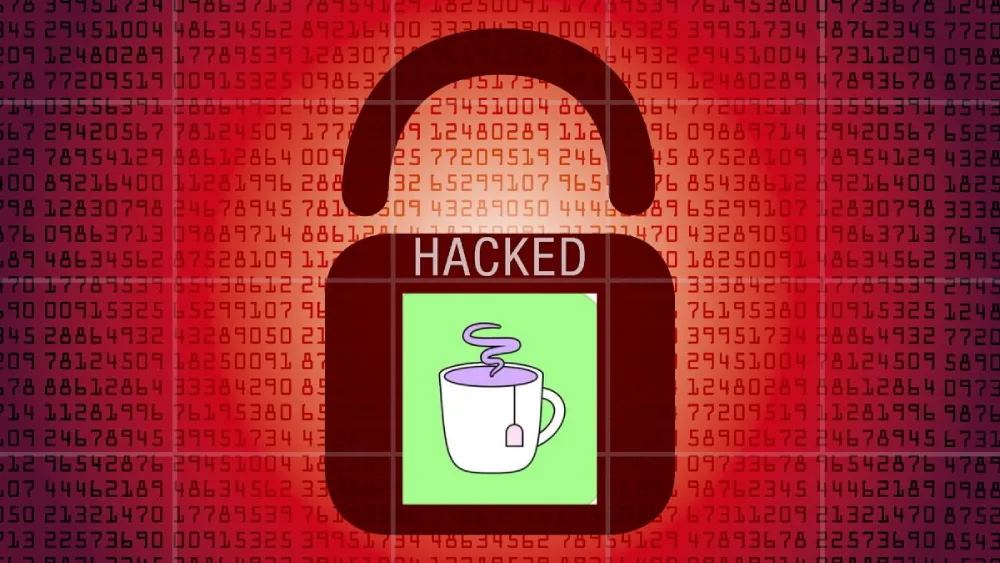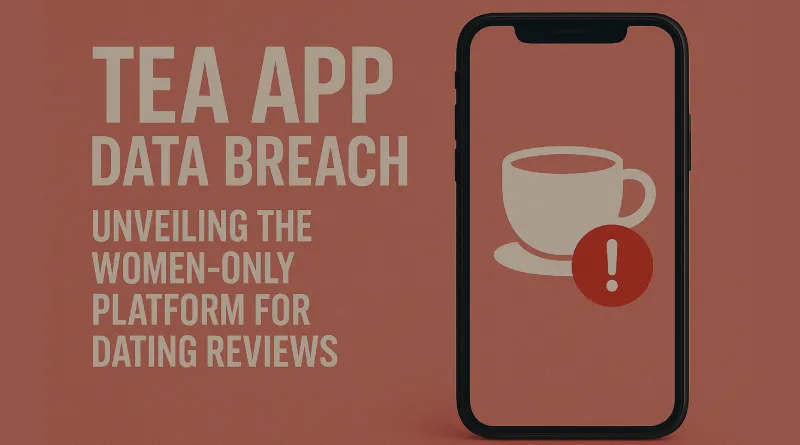Tea App Data Breach: Unveiling the Women-Only Platform for Dating Reviews
In the fast-evolving world of online dating, the Tea app emerged as a unique women-only platform designed to empower users by sharing candid reviews and insights about men they’ve dated. Promising a safer dating experience, Tea quickly rose to prominence, topping the US Apple App Store’s lifestyle category in July 2025. However, its meteoric rise was overshadowed by a significant data breach that exposed approximately 72,000 user images, raising critical questions about privacy, security, and the ethics of such platforms. This article delves into the Tea app’s purpose, features, the recent breach, and its broader implications, offering unique insights and local context for readers.
What is the Tea App?
Tea is a female-only dating app founded by Sean Cook, a San Francisco business entrepreneur, in 2023, which enables its users to post publicly about dating men anonymously, rate men on their properties, and report threatening signs that might turn red or green. Prompted by enterprising ideas, a mother of Cook herself faced dreadful experiences of being catfished and dating persons with hidden criminal backgrounds. Tea set out with the thought to build a sisterhood in safer dating. Having more than 4 million users, according to Tea on Instagram, the app became viral thanks to social media, including TikTok and Reddit, where women wrote about encounters with red flags, including a hidden marriage or criminal record.
The features of the application will be AI-based reverse image search, checking phone numbers to find out certain affairs, and verifying a background, including any criminal history. It also has a map that identifies registered sex offenders, positively portraying itself as an instrument of empowerment and security. The community-based philosophy of Tea leads to the provision of a space where people can seek advice and unedited narratives, commonly described as a dating analog to Yelp. To ensure user privacy, screenshots in the app are blocked, including a black screen when trying to take one, and the app manages to brag about donating 10 percent of its proceeds to the National Domestic Violence Hotline.
The Data Breach: What Happened?
On July 25, 2025, Tea acknowledged that 72,000 user images were leaked due to a large-scale data breach. A spokesperson of the company stated that the breach was on a legacy storage system dealing with all users who registered before February 2024. Among the images leaked, 13,000 were either selfies or ID verification photos, such as driver licenses, among others; 59,000 were the products of public viewable posts, comments, and direct messages in the application. Luckily, no email addresses or phone numbers were stolen, as Tea said in their statement.
Users on the misinformation-prone social site 4Chan first opened the breach by finding exposed data on an unsecured database filled with sensitive content. 404 Media pointed at a URL posted on 4Chan, which listed a number of attachments Tea has, with them being subsequently quarantined, resulting in a subsequent 404 with the message: Permission denied. Tea has since contracted the services of third-party cybersecurity professionals to tighten its systems, and no other information that belongs to any user appears to have been compromised. Nevertheless, the release of identity documents arouses severe suspicions regarding identity theft and stalking to the extent that Trey Ford, the security head at Bugcrowd, was concerned about the possibility of usernames being matched to legal names and addresses, which could lead to some unforeseeable consequences.

Unique Insights: Balancing Empowerment and Privacy
The hack of the Tea app shows the irony of a dating app that is supposed to make women safer but has ended up invading their privacy. An empowering feature in the app is anonymity, which is insufficiently fact-checked and can allow making unsubstantiated claims or being misused. This leads to the ethical issues of reconciling the security of users with responsibility. As opposed to the option of checking the professional credentials, such as is done through Glassdoor, Tea is highly uncontrolled by anyone, including some form of administrative intervention, since all of its information is user-generated, which is much more prone to defamation or untrue accusations, as is claimed by the critics on sites like Reddit.
Focusing on a local scenario, as much as Tea is located in the US, the fact that people can access it in various corners of the world, such as India, where online dating is increasingly popular, poses its own peculiarities. The digital environment of India, which counts more than 700 million internet users since 2025 (Statista), can be the environment of such apps, yet the context of privacy and masculine relationships is different. Indian women can also appreciate the safety characteristics of tea; however, local public records cannot help to improve its performance that Indian agencies cannot find as easily as it is in the US because of the accessibility of government databases about crimes.
Implications and Controversies
The increased popularity of and the subsequent violation by the tea industry have caused a polar shift. Female users praise the app because it helped them find confidence to avoid toxic relationships and discover dangerous signs in one go-around on social media. According to one Reddit user, Tea saved her when she had a toxic former boyfriend, and the girl wrote, “Even if one girl sees my warning, it is worth it.” Nonetheless, issues of infringement of privacy by men also prevailed since, once registered on the application, their photos and names can be shared at any time without prior permission or announcement. The critics may say that this may cause reputational damage or even cyberbullying, and as one of the people on Reddit stated, it is basically a trial of men on social media.
These concerns are increased by the breach that reveals the weaknesses of a service working with sensitive data. According to cybersecurity specialists, the cases indicate that there is a need to enhance encryption and conduct security checks frequently, particularly on apps that handle personal data. The answer provided by tea: working with the specialists and protecting systems can be seen as an improvement, yet restoring the trust of users will be hard.
The Road Ahead for Tea
The mission of tea to provide safer dating is an impressive one, but the breach demonstrates the intricacies of how to handle delicate data on a gathering platform that is community-based. Transparent communication, stronger security, and the ability to check the content created by users without losing anonymity will become the pillars supporting the regained confidence in Tea. To the users, the event acts as a lesson to be careful about what they post online, even in sites that seem safe.
On a final note, it can be said that the Tea app is an ambitious project to empower female users in the digital dating world, although its recent hack teaches us that fair play must exist between safety, privacy, and accountability. In going through this crisis, how the app will handle them will define the contributions in the long run. Tea is still a divisive but revolutionary element in online dating, fueling critical discourses of trust, security, and empowerment.
Disclaimer
The information presented in this blog is derived from publicly available sources for general use, including any cited references. While we strive to mention credible sources whenever possible, Web Techneeq – Seo Company in Andheri does not guarantee the accuracy of the information provided in any way. This article is intended solely for general informational purposes. It should be understood that it does not constitute legal advice and does not aim to serve as such. If any individual(s) make decisions based on the information in this article without verifying the facts, we explicitly reject any liability that may arise as a result. We recommend that readers seek separate guidance regarding any specific information provided here.

